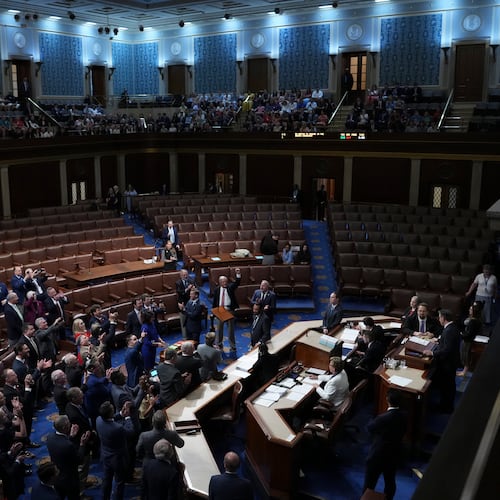Voters might not like the idea that one of two widely disliked people will almost certainly be the next president. But here’s the upside: It just might force Americans to question the trend toward ever-greater executive power.
Opinion polls indicate many voters will cast their ballots more in opposition to Hillary Clinton or Donald Trump than in support of the other. That’s hardly a mandate for moving even further away from the Framers’ intent that Congress be the strongest of the three branches of federal government. And right on cue, the Obama administration has offered an example of why rule by executive fiat is a bad idea.
I’m talking about the “guidance” from the Departments of Education and Justice that every public school in America must allow transgender students to use the bathroom or locker room of their choice. This is based solely on the administration’s belief that “sex discrimination” barred by Title IX includes gender identity. The administration doesn’t want this novel, legally unproven theory about the meaning of “sex” to be subject to the normal lawmaking process, but rather to make law (a legislative duty) by interpreting the law (a judicial prerogative).
If you support this action because you support the result, imagine for a moment that the DOJ and DOE were instead decreeing that no public school shall allow transgender students to use the bathroom of their choice — on pain of losing billions of dollars in funding. Legally and constitutionally, there is no difference between the two actions. If you object to one, you should also object to the other.
In fact, the way the administration has gone about making policy could end up undermining the very people it intended to help.
When legislators make law, there is an element of durability that doesn’t come with executive orders or “guidance.” When judges interpret provisions of law in new ways, they set precedents that bind courts in future cases.
The administration’s use of Title IX, however, makes the policy eminently reversible. If the next administration believes “sex discrimination” refers to biological sex (as the authors of Title IX inarguably intended), the policy goes poof.
And the feds chose this poor route needlessly. There was no national emergency at hand that couldn’t wait for Congress to decide to weigh in. But then, that’s typically been the case with executive actions over the past several years. Nor is there any compelling justification for a nationwide solution, rather than letting state and local governments sort through such a sensitive issue.
The sharply divergent opinions on the issue — like seemingly everything else touched by our polarized politics — instead argue against a sweeping federal diktat that can’t possibly take account of local situations, needs and resources. Not to mention that the top-down approach further inflames polarization. Come to think of it, that may be exactly what the administration was trying to do in an election year, with Clinton struggling to unite the Democratic base.
The system isn’t broken. The attitudes of the people running it are.
About the Author
Keep Reading
The Latest
Featured


